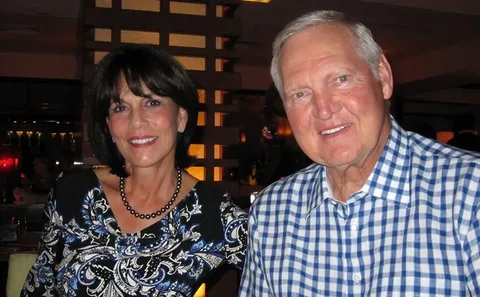
Kareem Abdul-Jabbar
kareem Abdul-Jabbar is a basketball legend whose name has become synonymous with excellence, longevity, and influence both on and off the court. His incredible achievements in the NBA, combined with his rich personal life, deep faith, and advocacy work, make him one of the most admired athletes in history. This article covers all you need to know about Kareem Abdul-Jabbar, including details about his son Kareem Abdul-Jabbar Jr., his height, net worth, wife, children, and religion.
Early Life and Rise to Stardom
Even as a child, he was extraordinarily tall, reaching 5 feet 8 inches by age nine, and ultimately standing at a remarkable 7 feet 2 inches tall as an adult. This extraordinary height would become one of his defining physical traits and an undeniable advantage in his basketball career.
As a high school player at Power Memorial Academy in Harlem, Kareem dominated, leading his team to 71 consecutive wins and three straight city championships. He set scoring and rebounding records, gaining national attention and solidifying his reputation as a future star.
Kareem Abdul-Jabbar’s Height and Physical Dominance
At 7 feet 2 inches, Kareem’s height was not only intimidating but also integral to his playing style. However, it was not just his height that set him apart; his agility, stamina, and skill made him a complete player. Known for his famous skyhook shot, a nearly unblockable move, Kareem was a versatile center who combined finesse and power, reshaping how the position was played.
His dedication to fitness allowed him to compete at the highest level well into his 40s, an age when most players have already retired. His physical regimen, including yoga and martial arts, was ahead of its time and contributed to his incredible longevity in professional basketball.
Kareem Abdul-Jabbar Jr: Following in His Father’s Footsteps
Kareem Abdul-Jabbar Jr., the eldest son of the basketball icon, has followed his father’s love for the sport. Born to Kareem and his first wife, Habiba Abdul-Jabbar, Kareem Jr. played college basketball, attending Valparaiso University before transferring to Western Kentucky University.
Although he has not reached the NBA, Kareem Abdul-Jabbar Jr. carries the weight of a legendary last name and continues to pursue basketball at a competitive level. Fans and analysts often watch his development, hoping he will continue the Abdul-Jabbar legacy in basketball.
Family and Personal Life: Kareem Abdul-Jabbar’s Wife and Children
Kareem Abdul-Jabbar married Habiba Abdul-Jabbar (born Janice Brown) during his senior year at UCLA. The couple married in 1971 and had three children together: daughters Habiba and Sultana, and son Kareem Jr. Their marriage ended in divorce in 1978.
In addition to his children with Habiba, Kareem has two other sons:
Amir, from a relationship with Cheryl Pistono, and Adam, who once appeared alongside his father on the TV sitcom Full House. Despite maintaining a relatively private personal life, Kareem’s role as a devoted father remains a significant part of who he is.
Kareem Abdul-Jabbar Religion: His Spiritual Journey and Conversion
Raised in the Catholic Church, Kareem Abdul-Jabbar underwent a profound spiritual transformation in 1971 when he converted to Islam. Upon his conversion, he adopted the name Kareem Abdul-Jabbar, which translates to “noble, powerful servant.”
His conversion was deeply connected to his African-American heritage and the exploration of identity. Kareem’s faith became a cornerstone of his life, influencing not only his worldview but also his activism and public life. He studied Arabic and Islamic teachings extensively, and while influenced by figures like Malcolm X, Kareem charted his own spiritual course.
Kareem Abdul-Jabbar’s Career Highlights
Kareem’s career achievements are legendary:
NBA’s all-time leading scorer with 38,387 points
Six-time NBA champion
Six-time NBA Most Valuable Player (MVP)
19-time NBA All-Star
Known for his unstoppable skyhook shot
Multiple playoff and All-Star game records
His career began with the Milwaukee Bucks, who drafted him first overall in 1969, and flourished after his trade to the Los Angeles Lakers, where he won five NBA titles alongside Magic Johnson during the “Showtime” era.
Kareem Abdul-Jabbar Net Worth: Wealth Beyond the Court
Kareem Abdul-Jabbar’s net worth is estimated to be around $20 million, amassed through his NBA career, endorsements, writing, acting, and public speaking. Post-retirement, Kareem expanded into:
Authoring books on history, culture, and sports
Acting roles in films such as Game of Death and Airplane!
Advocacy for social justice and education
Speaking engagements and product endorsements
His diverse pursuits have ensured his continued financial stability and cultural relevance.
Legacy and Impact
Kareem Abdul-Jabbar’s impact extends well beyond basketball. He is a vocal advocate for racial equality, education, and health awareness. He received the Presidential Medal of Freedom in 2016, one of the United States’ highest civilian honors, for his contributions both on and off the court.
His dedication to fitness, his pioneering style of play, and his social activism make him an enduring figure in American sports and culture.
Conclusion
Kareem Abdul-Jabbar’s towering height, illustrious basketball career, strong family ties, deep faith, and impressive net worth combine to paint the portrait of a man who transcended sports. His son Kareem Abdul-Jabbar Jr. carries the family’s basketball hopes forward, while Kareem himself continues to influence culture and society.
From his skyhook to his spiritual journey, Kareem remains a noble, powerful servant — a true legend.






